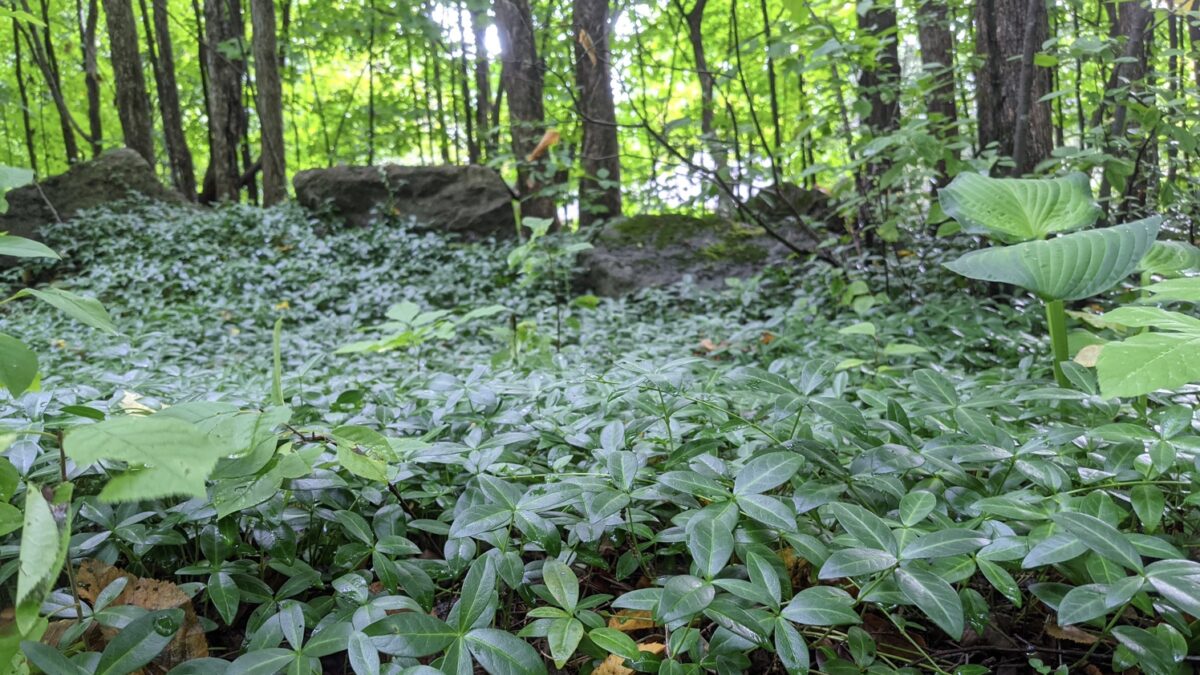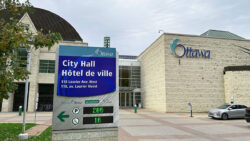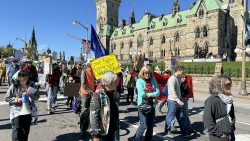Ecology Ottawa is urging the City of Ottawa to “rewild.”
The goal is to put a priority on the preservation of greenspace, plant of native vegetation in parks and on lawns and “naturalize” lands throughout the urban area.
“Cities around the world are embracing the idea of rewilding. If Ottawa is serious about a green and just recovery from the COVID pandemic, rewilding initiatives must be prioritized,” Ecology Ottawa says on its campaign website.
The environmental group wants local citizens to sign a petition and push local politicians to commit to the principles of rewilding. Signatories “urge council to take ambitious action to conserve and restore nature in Ottawa by making bold financial and political commitments to rewild our city.”
Ecology Ottawa is focused on sustainable urban living and routinely advocates for the importance of protecting the environment in and around Ottawa. The group has advanced many initiatives focused on creating a greener Ottawa and a healthier city environment.
There’s nothing more refreshing than a city park or greenspace to break up the constant grind of the concrete jungle. Greenspaces and public parks are a vital part of every community, especially those in city environments. These areas serve to benefit residents, pets local wildlife and the environment in general, and are a crucial piece of urban planning.
Ecology Ottawa promotes the importance of urban biodiversity and argues that one of the first steps the city needs to take amending bylaws that discourage residents from turning their front lawns and backyards into more naturalized landscapes.
By amending these bylaws — which include Property Standards (2013-416), Property Maintenance (2005-208), and Use and Care of Roads (2003-498) bylaws — residents of Ottawa would have more freedom to manage their own properties in more biodiversity-friendly ways.
Rewilding favours taller native grasses rather than the traditional green lawns and square hedges, as well as functional gardening that incorporates herbs, vegetables and other edibles.
“Rewilding is a method of conservation that helps nature thrive,” Ecology Ottawa says. “In urban spaces in particular, rewilding is all about reimagining our relationship with nature. It involves deliberate planting of native species and allowing this vegetation to become established through natural regeneration.”
Jeff Collins is the owner and operator of REWILD Landscapes, a landscaping company in Ottawa that specializes in naturalized landscaping, sustainable planting focusing on indigenous species and functional gardening. Collins says enhancing biodiversity is a key part of long term, functional rewilding.
“We need to think seven generations down the line — how will the land look in 100 years? — and build functional spaces for our clients to enjoy,” said Collins, adding that one of the goals of his company is to help local citizens be more connected to nature.
Since the beginning of the pandemic, the popularity of being in nature — especially for those living in urban areas — has skyrocketed, leading to an increased focus on outdoor activities and movements such as rewilding. With COVID-19 came pandemic lockdowns and travel restrictions, making the presence, or absence, of city parks and greenspaces all the more evident in urban areas.
Megan Quinn, coordinator for conservation biology in Eastern Ontario with the Nature Conservancy of Canada, said she believes that natural wildlife and greenery is essential to any person’s wellbeing, especially for the younger generation.
She said young people are highly motivated to restore the planet’s biodiversity, adding that youth engagement and youth-led nature conservation will be essential for the evolution of urban areas.
“I think youth especially have a massive opportunity when it comes to rewilding. There is passion and drive to make change in their environment,” she said. “I truly believe that youth have to be part of the conversation when it comes to talking about our planet.”





How does the acreage taken from the Experimental Farm for a large development (including the new hospital, but also a parking garage and condo buildings) square with ‘re-wilding’ Ottawa and the importance of preserving urban green spaces? Talk and action by decision-makers (at all government levels) are definitely at odds.